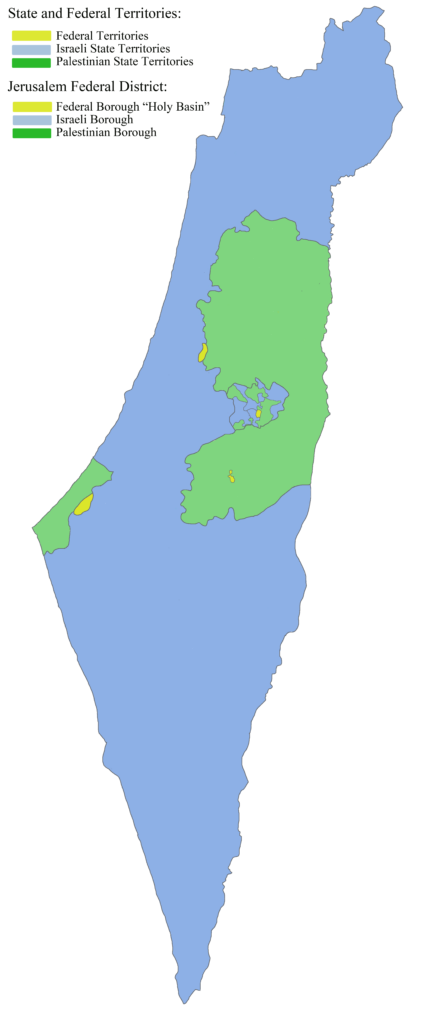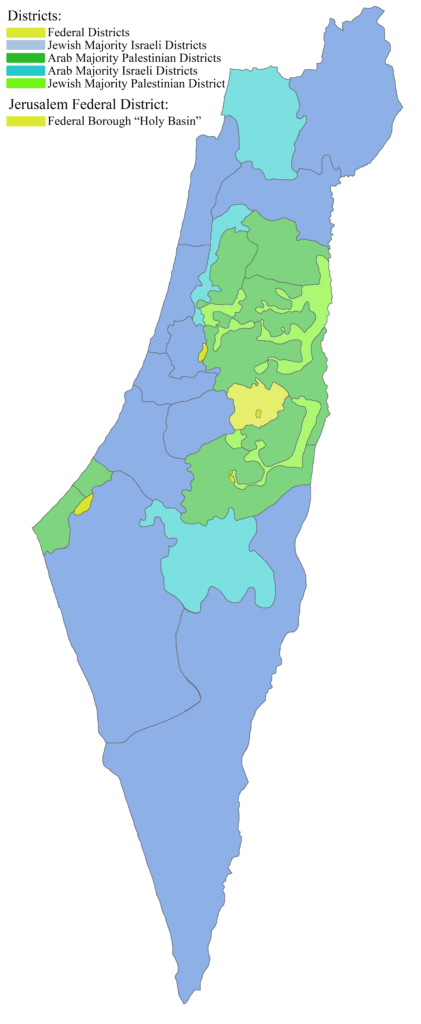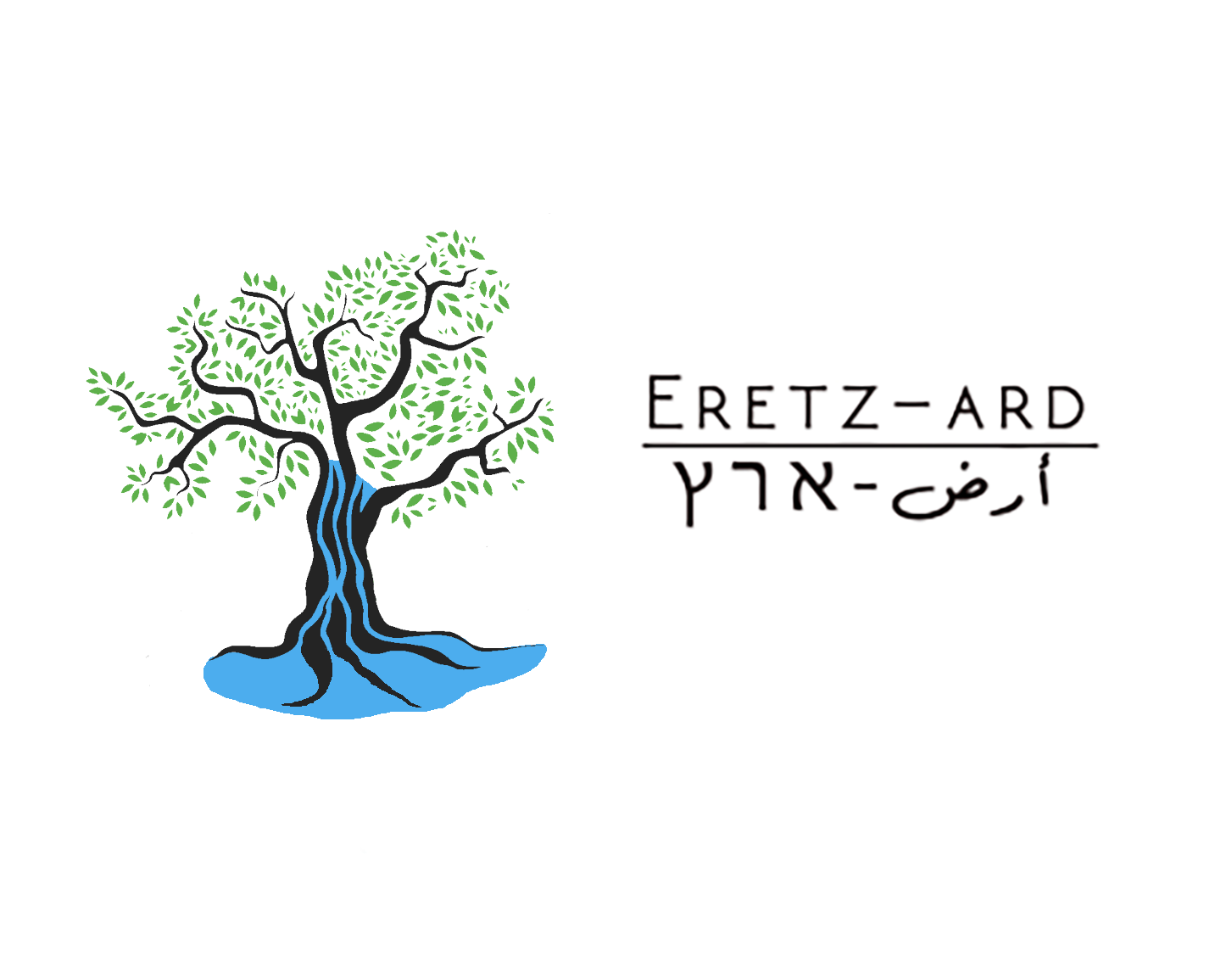The Jerusalem Union: A Comprehensive Framework for Israeli-Palestinian Peace
This proposal outlines an ambitious plan to resolve the Israeli-Palestinian conflict through the formation of a cooperative union. It emphasizes principles of peace, equality, freedom, justice, and reconciliation, proposing a unique blend of confederation and federation structures for shared governance. The Jerusalem Union proposal stands as a comprehensive and innovative approach to the Israeli-Palestinian conflict, seeking to transform historical adversaries into cooperative partners in governance, economy, and preservation of culture.
Core Components:
- Political Structure: A Two-State Union, a Confederation-Federation Hybrid, promoting shared governance with equal representation from both Israeli Jews and Palestinian Arabs.
- Territorial Management: Creation of autonomous districts, maintaining individual state identities while fostering unity.
- Jerusalem as a Dual Capital: Establishing Jerusalem as a shared capital, embodying the union’s spirit of coexistence.
- Citizenship and Refugee Policies: Comprehensive strategies for addressing citizenship status and refugee issues, focusing on equitable solutions.
- Economic Collaboration: Economic integration plans to enhance mutual growth, with emphasis on sustainable development and shared resources.
- Joint Security Strategy: A united defense approach, prioritizing regional stability and conflict prevention.
- Cultural and Rights Preservation: Strong emphasis on protecting cultural heritages, individual freedoms, and collective rights.
Read our proposal using the links below:
The Jerusalem Union_ Full Proposal (80 pages)
The Jerusalem Union_ Summary Version (13 pages)
The Jerusalem Union_ Overview (3 pages)
Core Principles:
- Two-State Basis with Shared Capital: Israel and Palestine are separate states, and Jerusalem is shared as a federal district and capital
- Freedom of movement: with no physical barriers or checkpoints within the Union, this will reduce conflict, and enable an integrated economy while honoring the historic connection that both people share with the entire land.
- Confederation-Federation Hybrid: Combining elements of both systems for autonomy, cooperation, and security.
- Demographic Considerations: Equal representation for Israeli Jews and Palestinian Arabs in federal structures.
- Land and Population Distribution: Base on the pre-67 lines with minor border adjustments and land swaps, considering demographic and cultural aspects.
- Shared Governance: Bicameral parliaments in each state and a shared federal parliament, with equal representation for Israeli Jews and Palestinian Arabs via carefully arranged Electoral Districts.
- Cultural Autonomy: Enabling the various Ethno-Cultural Communities to protect their collective rights through the establishment of local Community Councils.
- Economic Integration: Common market and special economic districts to boost cooperation and growth.
- Right of Return and Residency: Policies to address refugee issues and residency rights, including options for Palestinian returnees and Israeli settlers.
- Security Arrangements: A combination of Israeli, Palestinian, and Union police forces, with special provisions for the Israel Defense Forces (IDF).
- Legal and Human Rights Framework: A federal supreme court and bill of rights to protect individual and collective rights.
- Truth and Reconciliation: Comprehensive approach to reconciliation via concrete actions and policies to help build a new shared collective memory and achieve a warm peace.
- Path to Future Integration: The potential for eventual conversion into a federal state and a greater Middle Eastern regional economic union.
Goals:
- To replace conflict with a sustainable peace model.
- To establish a joint framework for economic and social prosperity.
- To demonstrate a practical model for resolving deep-rooted geopolitical conflicts.
Implications for Analysis and Comparison:
- Offers a novel approach combining elements of federation and confederation.
- Sets a precedent for complex conflict resolution involving deeply intertwined cultural and historical issues.
- Serves as a potential blueprint for other regions facing similar challenges.
Diagram of the Basic Structure of the Jerusalem Union
State and Federal Territories
Semi-Autonomous Electoral Districts


Proudly powered by WordPress
